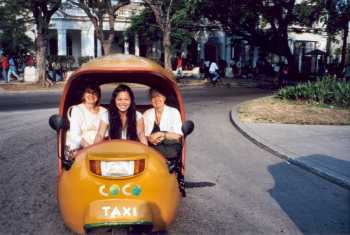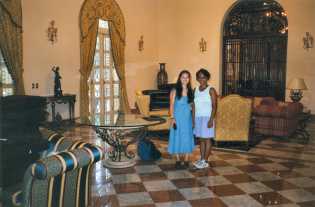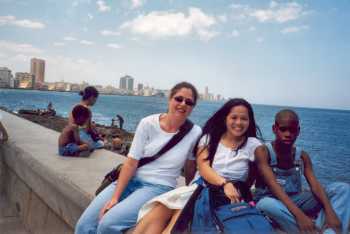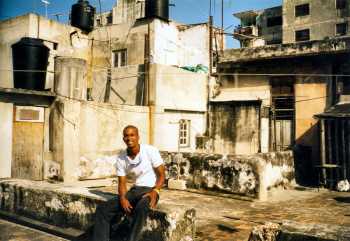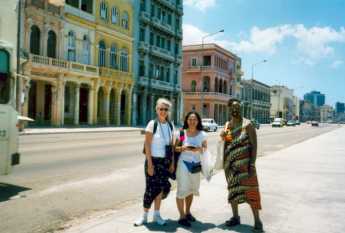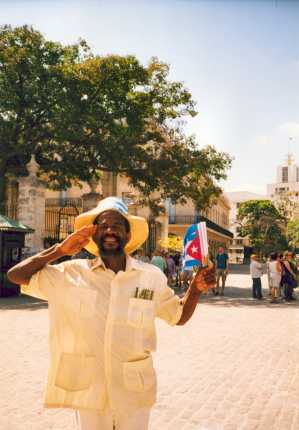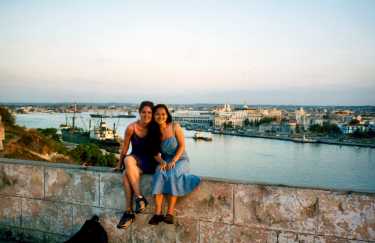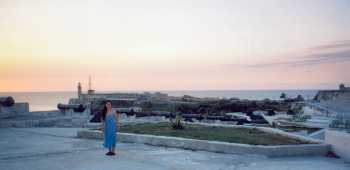
RN In Havana
by Loann M. Pham, R.N.
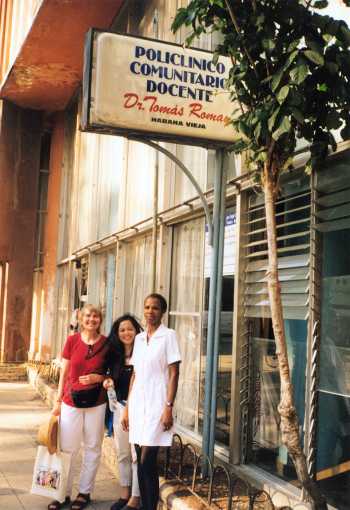
Former U.S. Surgeon general Jocelyn Elders:
"Cuba's
health care system is better at keeping people healthy than the U.S. system."
September 12, 2001
From April 26 to May 3 2002 I visited Havana, Cuba, to attend the International Public Health Convention with a group of public health professionals from Oakland, California. This was a wonderful learning experience for me, and in one week, I absorbed a year's worth of information. From my observation and interaction with the public health professionals and the other Cubanos I met, visiting many clinics and hospitals and learning Cuba's history, I became eager, motivated, and inspired to learn more about epidemiology, politics, and caring for the most underserved, underprivileged, and underrepresented people in the world. This trip made me more appreciative of my professional career as an R.N. and the Masters program in Community Health at UCSF.
That's me in the middle. Nurses around the world form an incredible sisterhood. We may not speak or understand each other's language but we are connected through our profession. Elaine, a Charge nurse at the PolyClinic, told us that to become a Cuban nurse, schooling consists of 3 years to get a diploma degree, then 5 more years to get a Baccalaureate degree.
After Cuba, I was very disenchanted with the U.S. health care system. Despite Cuba's lack of resources, economic crisis, and the cruel blockade, Cuba is able to provide free health care to its people and has lowered their disease, morbidity, and mortality rate. In addition, Cuba provides housing, food, and other resources to its people, and there are no homeless on the street.
Everyone in the community is involved in cleaning the streets. It was incredible to watch how all the people in the community gathered together with their brooms, rakes, and trashcans after May Day demonstration to clean the street.
These are some of the pictures I shot.
